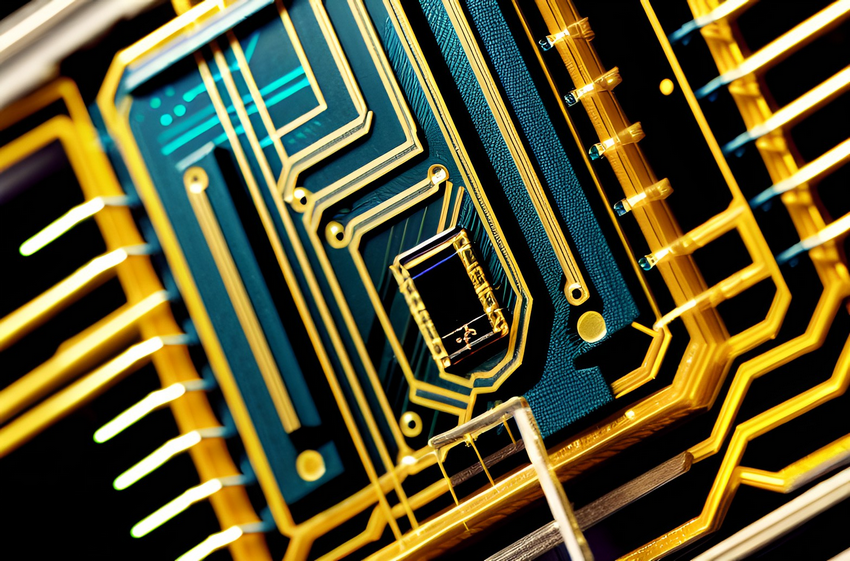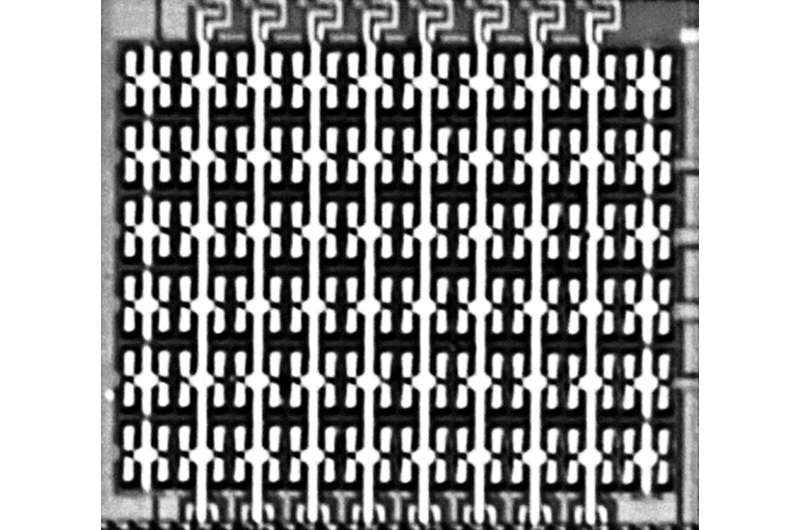
A memristor-based Bayesian machine
Over the past few decades, the performance of machine learning models on various real-world problems has improved significantly. However, training these models, as well as their implementation, still requires a huge amount of energy and computing power.
Therefore, engineers around the world are trying to develop alternative hardware solutions that will run artificial intelligence models more efficiently. This may contribute to their widespread use and increase their sustainability. Some of these solutions are based on memristors, memory devices that can store information without consuming power.
Memristors are electronic components based on nanodevices that limit or regulate the flow of electric current in a circuit, and also register in advance how much energy has passed through it. Because they perform both computation and information storage, these devices can better perform information processing tasks similar to the human brain.
Researchers at Université Paris-Saclay- CNRS, Université Grenoble-Alpes-CEA-LETI, HawAI.tech, Sorbonne Université, and Aix-Marseille Université-CNRS have developed a prototype Bayesian machine (i.e. a device based on Bayes' theorem) using memristors. The system they proposed, that was presented in a paper published in Nature Electronics, turned out to be significantly more energy efficient than currently used hardware solutions.

According to Damien Querlioz, one of the researchers who carried out the study: "Artificial intelligence is making major progress today but faces a challenge: its considerable energy consumption. It is now well understood that this consumption comes from the separation, in computers, between computation and memory functions. As artificial intelligence uses a lot of data, it requires a lot of memory, which is costly to access in terms of energy. Our brains are much more energy efficient because the memory functions are integrated as close as possible to the computation functions, and we wanted to reproduce this strategy".
"Until recently, memristors were an emerging technology, and we could not realize complete systems with them," – Querlioz explained. "Now, our team built a Bayesian machine, a small artificial intelligence with memristors. The prototype comprises 2048 hafnium oxide memristors and 30080 silicon transistors (MOSFETs)".

The architecture of the machine is designed by writing Bayes' law in such a way that its implementation is natural according to the principles of distributed memory and stochastic computing, allowing the circuit to function exclusively using local memory and minimal data movement. The researchers use a hybrid complementary metal-oxide-semiconductor/memristor process and prove that the larger machine design is more energy efficient in the practical task of gesture recognition than the standard implementation of Bayesian inference on a microcontroller. It can recognize certain human gestures using thousands of times less power than a traditional hardware solution based on a microcontroller. Also, this Bayesian machine provides instant on/off and is resistant to single failures.
"Most of the research on memristor-based machine learning aims at implementing deep learning," – Querlioz said. "This is, of course, an extremely important goal, as deep learning is so successful today. However, deep learning has some limitations: its results are not explainable, and it does not perform well when little data is available. Here, we chose to implement Bayesian reasoning, an alternative AI approach that does not do well in big data applications where deep learning works so well, but excels in small data situations, and provides fully explainable results".
In the future, the memristor-based Bayesian machine created by this group of researchers could help improve the power efficiency of AI models, as well as potentially inspire the development of other similar solutions. This can be particularly useful for safety-critical applications such as medical sensors and industrial safety monitoring circuits.
